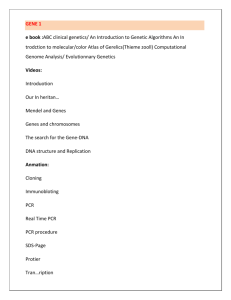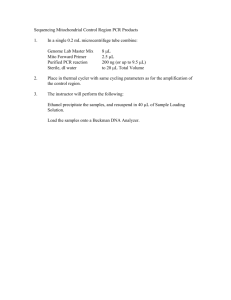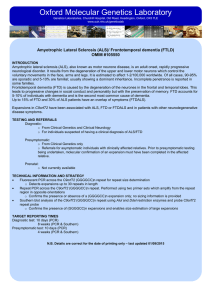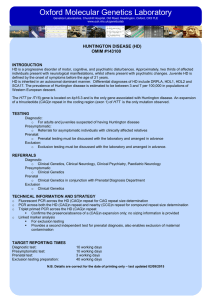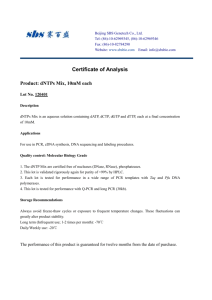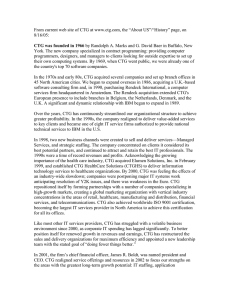Oxford Molecular Genetics Laboratory
advertisement
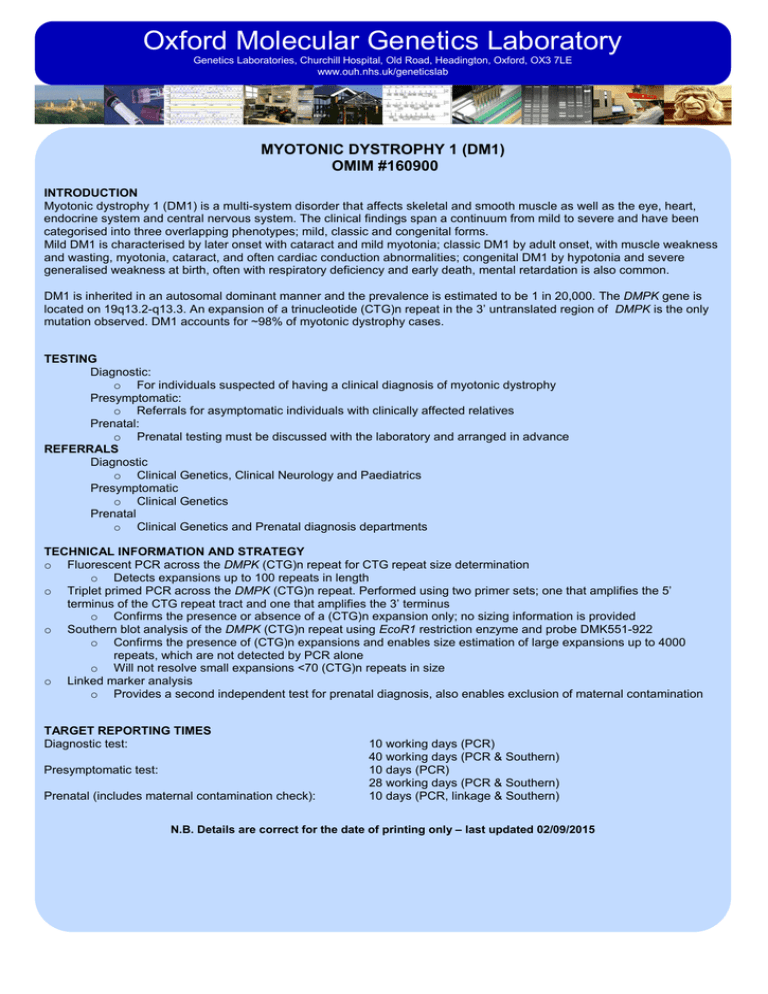
Oxford Molecular Genetics Laboratory Genetics Laboratories, Churchill Hospital, Old Road, Headington, Oxford, OX3 7LE www.ouh.nhs.uk/geneticslab MYOTONIC DYSTROPHY 1 (DM1) OMIM #160900 INTRODUCTION Myotonic dystrophy 1 (DM1) is a multi-system disorder that affects skeletal and smooth muscle as well as the eye, heart, endocrine system and central nervous system. The clinical findings span a continuum from mild to severe and have been categorised into three overlapping phenotypes; mild, classic and congenital forms. Mild DM1 is characterised by later onset with cataract and mild myotonia; classic DM1 by adult onset, with muscle weakness and wasting, myotonia, cataract, and often cardiac conduction abnormalities; congenital DM1 by hypotonia and severe generalised weakness at birth, often with respiratory deficiency and early death, mental retardation is also common. DM1 is inherited in an autosomal dominant manner and the prevalence is estimated to be 1 in 20,000. The DMPK gene is located on 19q13.2-q13.3. An expansion of a trinucleotide (CTG)n repeat in the 3’ untranslated region of DMPK is the only mutation observed. DM1 accounts for ~98% of myotonic dystrophy cases. TESTING Diagnostic: o For individuals suspected of having a clinical diagnosis of myotonic dystrophy Presymptomatic: o Referrals for asymptomatic individuals with clinically affected relatives Prenatal: o Prenatal testing must be discussed with the laboratory and arranged in advance REFERRALS Diagnostic o Clinical Genetics, Clinical Neurology and Paediatrics Presymptomatic o Clinical Genetics Prenatal o Clinical Genetics and Prenatal diagnosis departments TECHNICAL INFORMATION AND STRATEGY o Fluorescent PCR across the DMPK (CTG)n repeat for CTG repeat size determination o Detects expansions up to 100 repeats in length o Triplet primed PCR across the DMPK (CTG)n repeat. Performed using two primer sets; one that amplifies the 5’ terminus of the CTG repeat tract and one that amplifies the 3’ terminus o Confirms the presence or absence of a (CTG)n expansion only; no sizing information is provided o Southern blot analysis of the DMPK (CTG)n repeat using EcoR1 restriction enzyme and probe DMK551-922 o Confirms the presence of (CTG)n expansions and enables size estimation of large expansions up to 4000 repeats, which are not detected by PCR alone o Will not resolve small expansions <70 (CTG)n repeats in size o Linked marker analysis o Provides a second independent test for prenatal diagnosis, also enables exclusion of maternal contamination TARGET REPORTING TIMES Diagnostic test: Presymptomatic test: Prenatal (includes maternal contamination check): 10 working days (PCR) 40 working days (PCR & Southern) 10 days (PCR) 28 working days (PCR & Southern) 10 days (PCR, linkage & Southern) N.B. Details are correct for the date of printing only – last updated 02/09/2015
